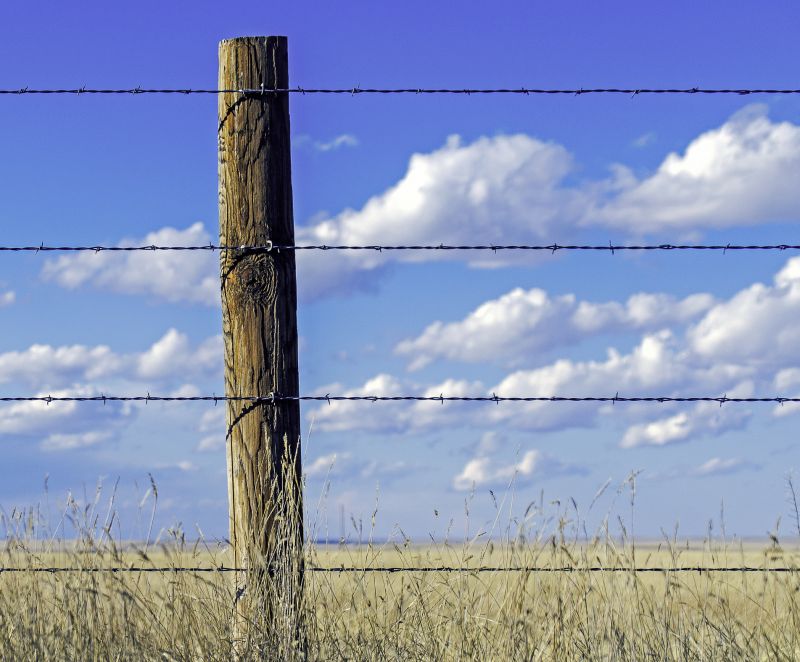Top Choices For Reliable Barbed Wire Installation Equipment
Select from proven equipment and supplies designed to improve efficiency and security in barbed wire fencing projects.
 Setting up a secure and effective barbed wire fence requires selecting the right products to ensure durability, safety, and ease of installation. From the initial planning stages to the final tensioning, understanding the variety of products available can help in making informed choices. Essential components include high-quality wire, sturdy posts, tensioning devices, and protective fittings that work together to create a reliable barrier. Proper installation not only enhances security but also extends the lifespan of the fencing system.
Setting up a secure and effective barbed wire fence requires selecting the right products to ensure durability, safety, and ease of installation. From the initial planning stages to the final tensioning, understanding the variety of products available can help in making informed choices. Essential components include high-quality wire, sturdy posts, tensioning devices, and protective fittings that work together to create a reliable barrier. Proper installation not only enhances security but also extends the lifespan of the fencing system.
Top Overall Option
Heavy-Duty Barbed Wire Roll
A heavy-duty barbed wire roll made from galvanized steel offers robust strength and excellent corrosion resistance, making it suitable for long-term fencing projects. Its high tensile strength allows for effective tensioning and durability under various weather conditions, providing a reliable barrier. Easy to unroll and cut to desired lengths, this product is compatible with various tensioning and post accessories, simplifying installation for both professionals and DIYers.
Types of Products For Barbed Wire Installations
Galvanized Steel Wire
Corrosion-resistant wire ideal for long-lasting fencing solutions, available in various gauges.
Barbed Wire Tensioners
Devices designed to tighten and secure barbed wire strands, ensuring consistent tension across the fence.
Fence Posts
Sturdy posts made from wood, metal, or concrete to support barbed wire securely.
Barbed Wire Clips
Clips used to attach wire securely to posts and tensioning devices, facilitating easy adjustments.
Barbed Wire Staples
Fasteners for attaching wire to wooden posts, providing stability and security.
Corner and End Posts
Specialized posts designed to anchor the fence at corners and ends for added stability.
Insulators
Components that prevent electrical conduction or provide protection where needed.
Wire Cutters and Pliers
Tools essential for cutting, twisting, and securing wire during installation.
Post Drivers
Tools for driving posts into the ground efficiently and securely.
Fence Tensioning Devices
Equipment used to apply and maintain proper tension in the wire strands.
Protective Caps
Caps that cover sharp wire ends to enhance safety during and after installation.
Grounding Rods
Used for grounding fencing systems, especially in electrified setups.
Barbed Wire End Posts
Posts designed specifically to anchor the wire at fence ends and corners.
Fence Line Markers
Markers to visually define property boundaries and fence lines.
Wire Ties
Reusable ties for temporary or adjustable fencing setups.
Post Braces
Support structures that reinforce post stability, especially in uneven terrain.
Barbed Wire Spools with Handles
Convenient spools designed for easier handling and unrolling during installation.
Popular Choices
Widely used for its corrosion resistance and ease of installation, suitable for various fencing needs.
Popular for maintaining consistent tension across long stretches of fencing.
Traditional posts favored for their ease of installation and compatibility with barbed wire.
Commonly used for securing wire to posts, available in various sizes.
Standard fasteners for attaching wire to wooden supports.
Essential for stabilizing fence corners and ensuring overall integrity.
A must-have tool for trimming and adjusting wire during installation.
Popular for quick and secure post installation in different terrains.
Useful for clearly marking property boundaries during setup.
Frequently used in electrified fencing systems for safety and functionality.
Commonly selected for securing the ends of fencing runs.
Versatile for temporary adjustments and securing loose wire sections.
Popular for ensuring proper wire tension and overall fence stability.
Preferred for safety, covering sharp wire ends after installation.
Helps in visually defining the fencing layout during setup.
When choosing products for barbed wire installations, considerations such as material strength, corrosion resistance, and compatibility with existing infrastructure are crucial. The right tools and accessories can streamline the process, reduce maintenance needs, and improve overall safety. Whether installing a temporary barrier or a permanent fence, selecting appropriate products tailored to specific needs is vital for achieving the desired outcome.
Professionals and DIY enthusiasts alike benefit from understanding the key features of various products, including their ease of use, adjustability, and durability under different weather conditions. Investing in quality components can help prevent issues like sagging, breakage, or rusting over time. As the demand for secure fencing solutions grows, a wide array of specialized products continues to emerge, offering options suited for different terrains and security levels. Making well-informed choices ensures a successful installation that meets safety standards and project goals.
Key Buying Considerations
- Material durability and corrosion resistance to withstand weather conditions.
- Gauge and thickness of the wire to match security and strength needs.
- Compatibility of tensioning devices with wire gauge and length.
- Type and quality of posts suitable for terrain and fence height.
- Ease of installation and whether tools are included or need to be purchased separately.
- Safety features such as protective caps or covers for sharp wire ends.
- Availability of replacement parts and accessories for future maintenance.
- Weather resistance of components to prevent rust and degradation.
- Flexibility in adjusting tension and length during installation.
- Cost-effectiveness considering long-term durability and maintenance.
- Ease of transportation and handling of large spools or rolls.
- Compatibility with existing fencing infrastructure or materials.
- Environmental conditions of the installation site, such as soil type and terrain.
- Compliance with local fencing regulations and standards.
- Brand reputation and reviews for quality assurance.
This content includes affiliate links. We may earn a commission if you make a purchase through these links, at no additional cost to you.
